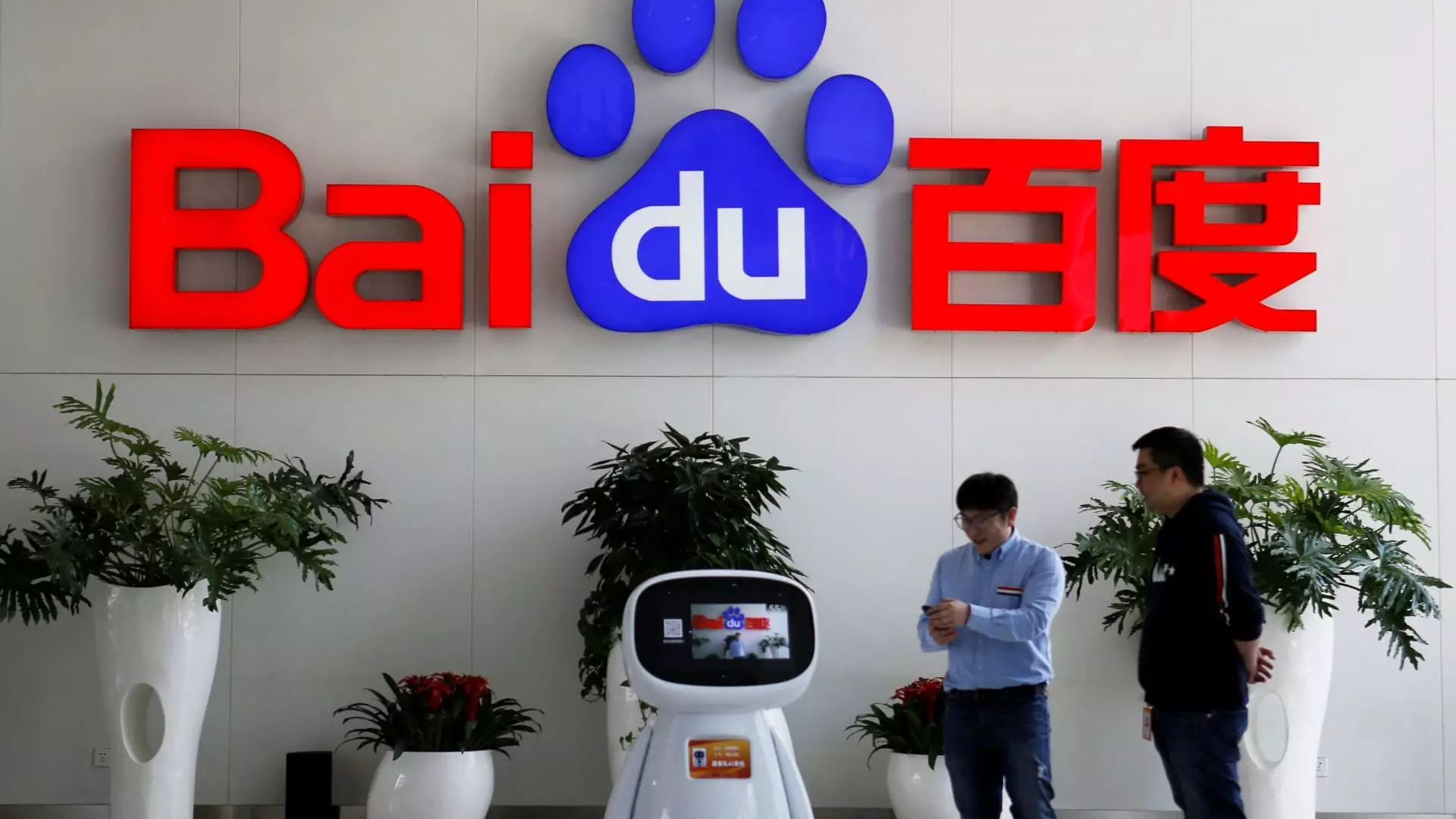As artificial intelligence (AI) continues to evolve at a breathtaking pace, companies around the globe are scrambling to keep up. Among them, the Chinese tech giant Baidu is poised to make significant strides with the anticipated release of its next-generation AI model, dubbed Ernie 5.0. Slated for rollout in the latter half of this year, this development represents not just an upgrade in technology but a concentrated effort by Baidu to solidify its standing in a rapidly competitive landscape stirred by disruptive players like DeepSeek.
At the core of the upcoming Ernie 5.0 is its impressive “multimodal” capabilities. This term refers to the model’s ability to process a variety of input formats, including text, images, audio, and video, enabling a seamless transition across media types. Such advancements are transformative; for instance, the potential to convert text to video would enhance content creation and accessibility in a myriad of applications. Users can expect this AI to not only perform basic tasks like generating coherent text responses but also to exhibit a sophisticated understanding of context and creativity in multimedia formats.
Baidu is not alone in its quest for AI supremacy. The landscape is dotted with emerging competitors and established players, each vying to outperform the other. The recent rise of startups like DeepSeek underscores a shifting paradigm in the AI sector, where innovation comes not only from traditional tech giants but also from nimble enterprises that can rapidly develop cost-effective solutions. DeepSeek, for example, made headlines with its open-source model that boasts advanced reasoning capabilities and significantly reduced operational costs compared to industry behemoths like OpenAI’s ChatGPT.
This competitive urgency is further exacerbated by the exponential growth in consumer and business demand for AI solutions. During a recent summit in Dubai, Baidu’s CEO Robin Li emphasized the importance of lowering inference costs, which could enhance productivity in ways that directly impact the bottom line across sectors. Such statements highlight a crucial aspect of AI development—not only is innovation driven by technological advancements, but also by the need for economic efficiency.
Despite Baidu’s pioneering efforts with its Ernie chatbot, which debuted in March 2023, the company finds itself at a crossroads. The initial excitement surrounding Ernie has since waned, overshadowed by emerging technologies from rivals such as Alibaba and ByteDance. While Baidu’s shares have seen modest growth of 6% this year, its competitors are enjoying far more favorable market performance—Alibaba has surged by 33% on the stock market. The success of these companies amplifies the pressure on Baidu to ensure that Ernie 5.0 not only catches up but innovates beyond expectations.
In this context, Baidu has leveraged its existing applications, integrating the current Ernie model across various platforms, including cloud services and content creation tools. The rise of their Wenku platform, which recently surpassed 40 million paying users, is a testament to the company’s capability to harness AI’s potential effectively. However, maintaining user engagement and satisfaction as competitors innovate remains a critical challenge.
As Baidu prepares to unveil Ernie 5.0, it represents not just an incremental update, but a crucial juncture for the company and the industry at large. The focus on multimodal processing could redefine how AI interacts with users, leading to richer, more immersive experiences. However, this ambition must be matched by strategic execution and responsiveness to market trends.
Furthermore, the tech community is buzzing with anticipation regarding when and how other major players, including OpenAI, will respond to these developments. With OpenAI’s recent launch of GPT-4o and the ambiguous timeline for GPT-5, it is clear that the race for AI innovation is heating up. As companies strive to carve out their niches, the question remains whether Baidu will emerge as a true leader in the space or risk being relegated to the sidelines.
In essence, Baidu’s upcoming release of Ernie 5.0 serves as a crucial marker of progress in AI technology. Its journey reflects broader trends in the industry, emphasizing the importance of innovation in both functionality and cost-effectiveness. As the competition intensifies, success will hinge not only on technological capabilities but also on the ability to engage users and adapt to their evolving needs. The next chapter in AI promises to be an exciting one, with Baidu at the forefront of the race to redefine what is possible with artificial intelligence.


Leave a Reply